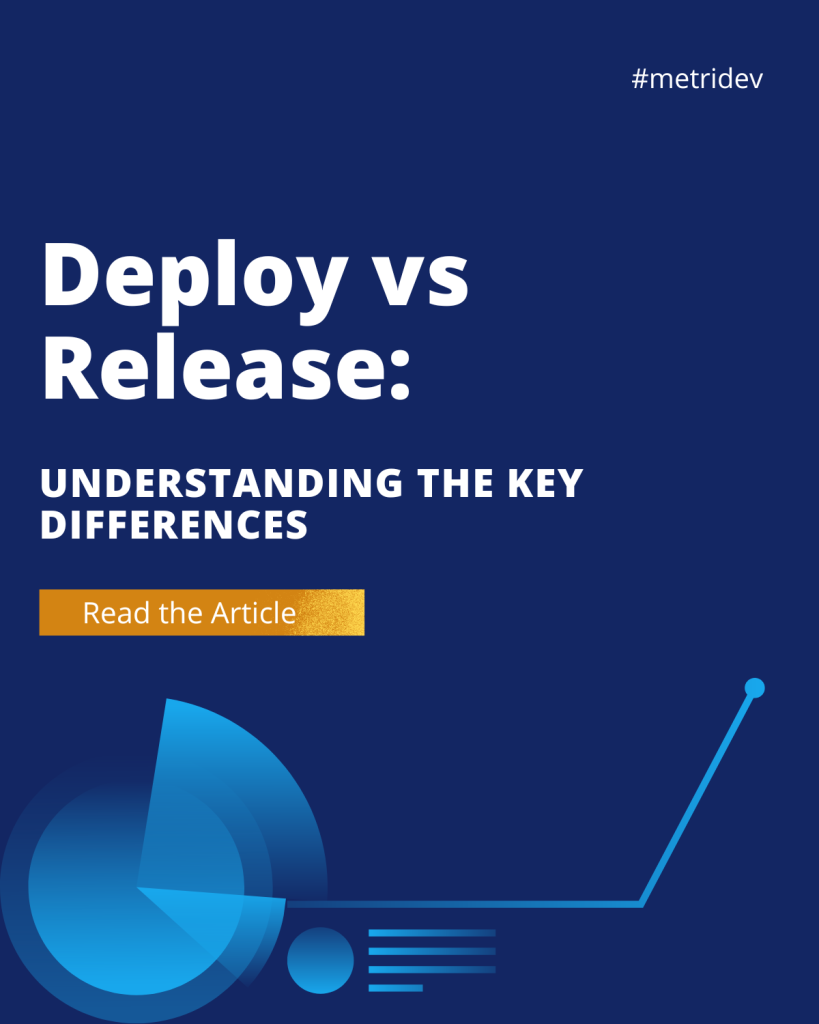Introduction
In the rapidly evolving digital landscape, organizations are increasingly recognizing the importance of digital platform engineering as a critical driver of success. Moreover, this discipline combines the principles of software engineering, infrastructure management, and data-driven decision-making to create robust, scalable, and adaptable digital platforms that can support an organization’s strategic objectives.
What is Digital Platform Engineering?
Digital platform engineering is the process of designing, developing, and maintaining a comprehensive digital infrastructure that enables an organization to efficiently and effectively deliver its products or services. Additionally, this approach involves the integration of various technologies, including cloud computing, microservices, and data analytics, to create a seamless and integrated digital ecosystem.
Understanding Digital Platform Engineering
At its core, digital platform engineering is fundamentally about building a solid foundation that can support an organization’s digital transformation journey. Specifically, it encompasses the design, development, and resilient digital platforms that can adapt to changing business requirements and technological advancements. Moreover, by prioritizing these aspects, organizations can ensure their digital platforms remain robust and future-proof.
Is Platform Engineer the Same as DevOps?
While there are some similarities between the roles of a platform engineer and a DevOps engineer, they are not entirely the same. A platform engineer is primarily responsible for the design, development, and maintenance of the underlying digital infrastructure, including the cloud, data, and application platforms. In contrast, a DevOps engineer focuses on the integration of development and operations processes, ensuring smooth and efficient software delivery.
The Role of DevOps in Digital Platform Engineering
DevOps plays a crucial role in digital platform engineering by facilitating the seamless integration of development and operations activities. DevOps practices, such as continuous integration, continuous deployment, and automated testing, help ensure that the digital platform is constantly evolving and improving to meet the changing needs of the organization.
Benefits of Digital Platform Engineering
Embracing digital platform engineering offers organizations a plethora of benefits. Transitioning from this statement, increased agility is one such advantage, as a well-designed digital platform enables swift responses to market changes and customer demands, ensuring a competitive edge. Moreover, enhanced scalability ensures that the organization’s digital infrastructure can adapt to fluctuations in demand, supporting growth effectively. Additionally, digital platform engineering improves efficiency by automating processes and streamlining service delivery, thereby optimizing operations and reducing costs. Furthermore, it enhances security by incorporating robust security measures to safeguard data and systems from cyber threats. Lastly, the integration of data analytics and business intelligence into the digital platform facilitates more informed, data-driven decision-making, contributing to organizational success.

Key Components of a Strong Foundation
Building a strong foundation for digital platform engineering necessitates the integration of several key components. Transitioning from this statement, firstly, organizations require a reliable and scalable cloud infrastructure capable of supporting digital platforms and services seamlessly. Secondly, adopting a modular, service-oriented microservices architecture facilitates the development and deployment of independent components. Moreover, automation and orchestration tools streamline processes for deploying, scaling, and managing the digital platform efficiently. Additionally, effective data management strategies encompassing storage, processing, and analytics are crucial for supporting data-driven decision-making. Lastly, robust cybersecurity measures and practices are essential to safeguarding digital assets from cyber threats. By integrating these components cohesively, organizations can establish a solid foundation for successful digital platform engineering initiatives.
What is Data Platform Engineering?
Data platform engineering is a specialized subset of digital platform engineering that focuses on the design, development, and management of the data infrastructure and analytics capabilities within an organization. This discipline involves the integration of various data-related technologies, such as data lakes, data warehouses, and business intelligence tools, to enable data-driven decision-making.
Implementing a Digital Platform Engineering Strategy
Implementing a successful digital platform engineering strategy requires a comprehensive and strategic approach. Key steps in this process include:
- Assess Current Capabilities: Evaluate the organization’s existing digital infrastructure, processes, and capabilities to identify areas for improvement.
- Define the Vision and Roadmap: Establish a clear vision for the digital platform and develop a roadmap to guide the implementation process.
- Adopt Agile and DevOps Practices: Embrace agile and DevOps methodologies to ensure the rapid and efficient delivery of digital platform enhancements.
- Leverage Cloud Technologies: Utilize cloud-based services and infrastructure to enhance the scalability, flexibility, and cost-effectiveness of the digital platform.
- Integrate Data and Analytics: Incorporate data management and analytics capabilities into the digital platform to support data-driven decision-making.
- Prioritize Security and Compliance: Implement robust security measures and ensure compliance with relevant industry regulations and standards.
- Foster a Culture of Innovation: Encourage a culture of experimentation and continuous improvement to drive the ongoing evolution of the digital platform.
Best Practices
To ensure the success of a digital platform engineering initiative, organizations should adhere to several best practices. Firstly, they should adopt a microservices architecture, leveraging a modular, service-oriented approach to facilitate independent development, deployment, and scaling of components. Moreover, embracing automation and orchestration is crucial. It streamlines platform deployment, scaling, and management, enhancing efficiency and reducing the risk of errors. Additionally, implementing continuous integration and deployment through a CI/CD pipeline enables rapid and frequent delivery of updates and enhancements to the platform. Furthermore, prioritizing data management and analytics is essential to support data-driven decision-making and drive business value. Foster cross-functional collaboration is another critical practice, encouraging alignment between development, operations, and business teams with the organization’s strategic objectives. Lastly, continuously monitoring and optimizing the platform’s performance and utilization ensures its efficiency and effectiveness are maintained over time.
Tools and Technologies for Digital Platform Engineering
The digital platform engineering landscape is constantly evolving, with a wide range of tools and technologies available to support the design, development, and management of digital platforms. Some of the key tools and technologies used in this field include:
- Cloud Platforms: Amazon Web Services (AWS), Microsoft Azure, Google Cloud Platform
- Container Management: Docker, Kubernetes
- Automation and Orchestration: Ansible, Terraform, Jenkins
- Monitoring and Observability: Prometheus, Grafana, Elasticsearch, Kibana
- Data Management: Apache Hadoop, Apache Spark, Apache Kafka, Snowflake
- Business Intelligence and Analytics: Tableau, Power BI, Qlik
- Security and Compliance: Splunk, Palo Alto Networks, Fortinet
Challenges and Solutions
While the benefits of digital platform engineering are well-documented, organizations may encounter several challenges during implementation. Transitioning from this statement, some of the common challenges and potential solutions include complexity management. The increasing complexity of digital platforms can pose a significant hurdle. Organizations can address it by adopting a modular, microservices-based architecture and utilizing automation and orchestration tools. Furthermore, talent acquisition and retention present another challenge. Organizations need to invest in training and development programs, offer competitive compensation, and foster a culture of innovation and growth to attract and retain skilled professionals.
Additionally, integrating legacy systems with the digital platform can be complex and time-consuming. They requir organizations to prioritize a gradual, phased approach to integration and leverage modern integration tools and techniques. Moreover, ensuring the security and compliance of the digital platform is critical but can also be challenging. It can necessitates the implementation of robust security measures and staying up-to-date with industry regulations and best practices. Lastly, organizational resistance to change may hinder the adoption of digital platform engineering due to cultural or organizational inertia. It highlights the importance of change management, effective communication, and demonstrating tangible business benefits to overcome this resistance.
What are Examples of Platform Engineering Companies?
Many leading technology companies have successfully implemented digital platform engineering strategies to drive their business growth and innovation. Some examples of companies that have embraced platform engineering include:
- Amazon: Amazon’s AWS cloud platform is a prime example of a successful digital platform engineering initiative. It provides a comprehensive suite of cloud-based services and infrastructure to support a wide range of customer needs.
- Google: Google’s cloud platform and suite of productivity and collaboration tools are the result of the company’s digital platform engineering efforts. For instance, Google Cloud Platform and G Suite,
- Netflix: Netflix’s highly scalable and resilient streaming platform leverages cloud-based infrastructure and microservices architecture. It is a testament to the company’s digital platform engineering capabilities.
- Spotify: Spotify’s music streaming platform is a prime example of successful platform engineering. It is powered by a robust digital infrastructure and data-driven decision-making,
- Uber: Uber’s ride-sharing platform is a product of the company’s digital platform engineering efforts. It seamlessly connects drivers, riders, and various third-party services,
Hiring the Right Talent for Digital Platform Engineering
Attracting and retaining the right talent is crucial for the success of a digital platform engineering initiative. To achieve this, organizations should focus on building a diverse team of professionals with a range of skills. Firstly, experienced software engineers play a vital role in developing and maintaining complex software systems, leveraging modern software engineering practices. Transitioning from this role, infrastructure engineers contribute with their expertise in cloud-based infrastructure management, automation, and orchestration.
Additionally, data engineers bring proficiency in data management, analytics, and business intelligence to the team. Moreover, DevOps engineers integrate development and operations processes, enabling efficient and continuous software delivery. Furthermore, security specialists play a critical role in implementing robust security measures and ensuring compliance. Lastly, product managers bridge the gap between business and technology, aligning the digital platform with the organization’s strategic objectives. By building a well-rounded team of digital platform engineering professionals, organizations can enhance their capabilities and drive success in their initiatives.
Conclusion
In the ever-evolving digital landscape, digital platform engineering has emerged as a critical discipline for organizations seeking to drive innovation, enhance efficiency, and stay ahead of the competition. By building a strong foundation for their digital platforms, organizations can unlock a wide range of benefits, from increased agility and scalability to improved decision-making and enhanced security.
As the demand for digital transformation continues to grow, the importance of digital platform engineering will only continue to rise. By embracing best practices, leveraging the right tools and technologies, and building a talented team of professionals, organizations can position themselves for success in the digital age.
To learn more about how digital platform engineering can transform your organization, read our article KPI for Engineering Department: Maximizing Success.









Leave a Reply